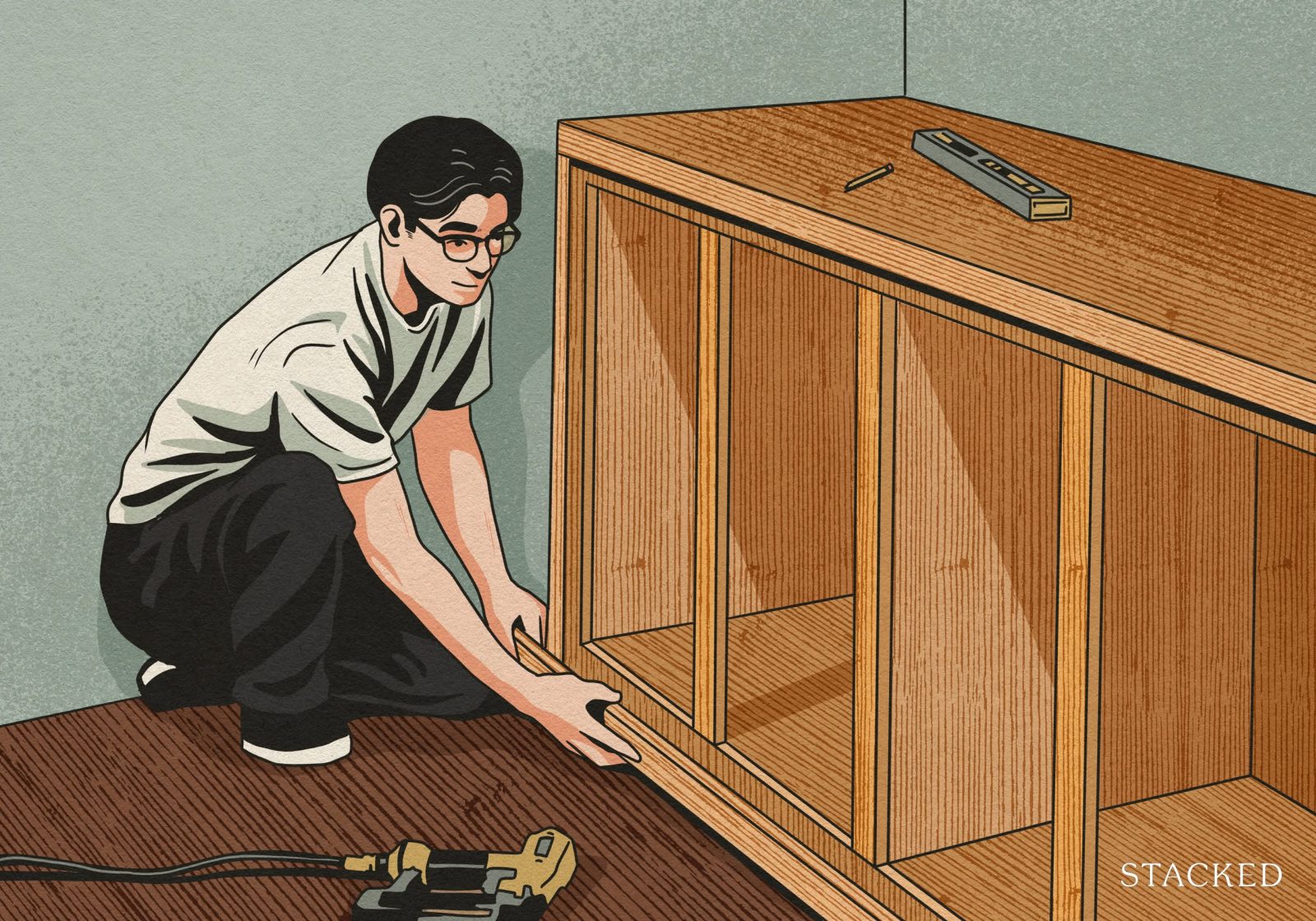Published date
Written by
Most Singaporeans see their condo's en-bloc sale as a windfall. For many, it may even be a planned exit strategy: ask around, and some investors will tell you it's the specific reason they like older condos (i.e., buy cheaper because of the age, then profit when a developer comes after the plot).
But not every Singaporean is happy about seeing their home go. This week, we spoke to some who voted against the en-bloc of their property:
1. Difficulty in finding a replacement property due to cost and age
KH lives in an ageing condo in the Tanah Merah Kechil area, which he describes as being "crowded with condos." Of the many projects here, his is one of the oldest, dating back to around 1994.
His reason for opposing the en-bloc is the difficulty of finding a replacement unit today. He says:
"Even a three-bedder now is almost $2 million, if I buy another old condo here, at least about $1.5 million. So how much do we really make? Make peanuts, you know.
And if they en-bloc the money doesn't come straight away, so in the meantime that leaves us where? I am already 58, my wife is not working. At our age we don't want to rent."
KH isn't wrong about the cost of a replacement property if he wants to continue living in Tanah Merah. It's also plausible that the recent Sceneca Residence project, which also adds a commercial element to this area, will have a knock-on effect and raise prices.
When we broached the possibility of moving elsewhere, KH said:
"If I move, it will probably be to Paya Lebar, since my children and grandchildren stay around there. But Paya Lebar is even more expensive. I already told my wife, if this place en-blocs, you better be ready as we will probably move back to HDB.
A condo today is too much. Hopefully, we can at least get a flat near Paya Lebar. But if possible, we want to live out our time here."
2. Family member's health condition precludes moving
LT recently failed to prevent the en-bloc of her project, a landed development with terrace houses dating back to 1984. LT says the project was freehold, which made it especially desirable to developers. But while the sale proceeds were "good," LT says the issue wasn't the money.

LT's brother has a condition that makes moving difficult. Whilst she'd rather not discuss it in detail, she says that her brother has an absolute need for routine and familiarity:
"Once he is used to a certain pattern, like when he eats or what clothes he wears on certain days, he gets very upset if the routine is broken. He can get very bad anxiety attacks, or disorientation. When we move from here, the lack of familiarity can be quite difficult for him: this is the place where he knows the neighbours, he knows where we go to eat, which routes we take for a walk, and so on. He is so sensitive he even knows when something happened to the neighbour's dog, because it stopped barking in the afternoon."
This caused LT to vote against the en-bloc, although she says she knew "it was kind of doomed from the start, but I tried anyway."
LT says their replacement property will probably be a newer project; preferably one that's freehold, to make it as permanent as possible. However, she says resale is a must, as having to move twice (i.e., renting while waiting for a new place to be built) will be even more stressful under their circumstances.
3. Recent, high-priced renovations that weren't fully covered by the proceeds
Our next story isn't from the residents themselves but from a property agent. He wants to be known only as Matt, and he says that:
"The family was facing an unwanted en-bloc. I would say they came out on the losing end of it because of bad timing. Roughly a year-and-a-half before the en-bloc, they just renovated; they knocked down a wall to extend the living room, put in a false ceiling, all quite expensive stuff. It was a very big place also, old condo, about 1,700+ sq ft, so a lot of work done.
You can imagine they weren't happy with the en-bloc coming so soon after that. They spent about $80,000 to $90,000 on their reno, because in their mind they were going to stay for a long time more. Even their daughter was halfway through Primary six, intending to go to the same Secondary school nearby."

The family felt the sale proceeds didn't take into account their renovations. The discussion frequently revolved around the valuation of their unit only — and since the project was over 30 years old, this ended up being a rather low figure.
While the family was able to negotiate for more eventually, Matt says they barely broke even after the reno costs. While he was able to find them a replacement property nearby, he says that:
"It was the best of a bad deal for them. For me, it was interesting, because they're the first people I've met who were shortchanged by their en-bloc."
[[nid:712061]]
